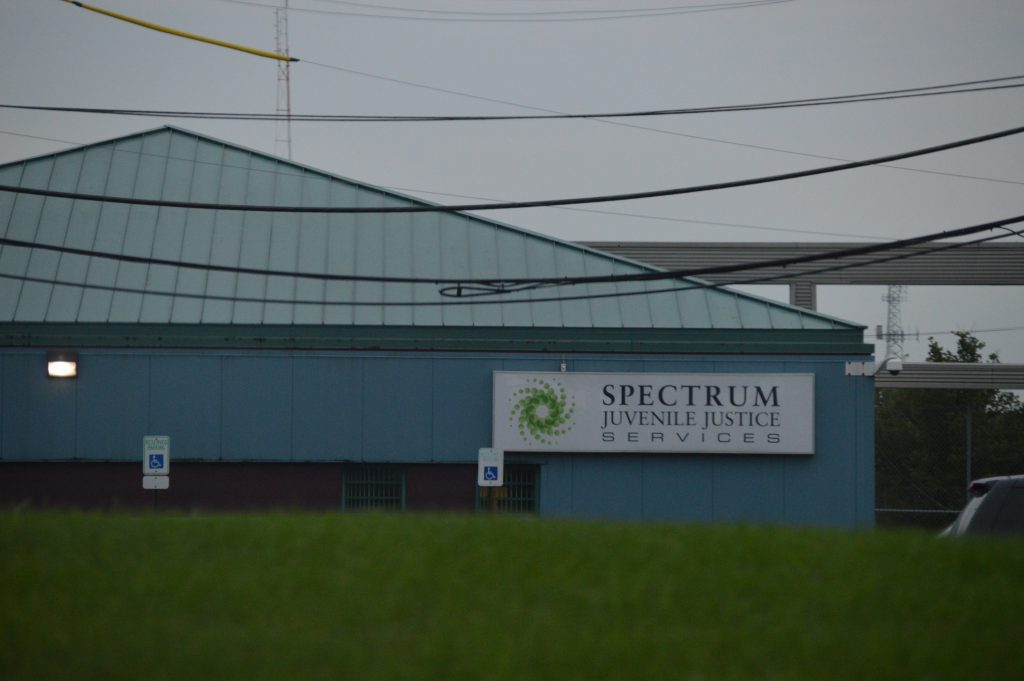Officials Look for Ways to Fix Michigan’s Juvenile Justice System
Michigan Supreme Court Justice Beth Clement says race will be a “primary focus” for the state’s new Task Force on Juvenile Justice Reform.

There’s a new push to rethink juvenile justice in Michigan. Last week, Gov. Gretchen Whitmer issued an executive order creating the state’s new Task Force on Juvenile Justice Reform.
As part of the weekly series MichMash, Jake Neher talks with Michigan Supreme Court Justice Beth Clement about the new task force and the areas that must be addressed in our juvenile justice system.
Subscribe to MichMash on iTunes, Spotify, Google Podcasts, NPR One or wherever you get your podcasts.
Clement says, first and foremost, the state needs to get a handle on what is actually happening in the juvenile justice system.
“It’s important to understand that what we have in Michigan is a decentralized system,” she says. “So that means that juvenile justice is handled at the local level. And what that means is that we don’t have a good handle on the data and what is happening in each county as it relates to juvenile justice. So that’s going to be one of the primary areas that we need to address.”
“I think our primary goal needs to be on prevention, keeping kids out of the system,” says Clement. “And if they are there, reducing detention and keeping them with their families and in the community.”
Clement says the issue of “status offenses” — ones that land juvenile offenders in detention because of a violation that is related to their age — is one area that could be addressed once the state has a better understanding of the statewide data. Examples include the story of Grace, a Birmingham Groves High School student who spent 78 days in the Children’s Village juvenile detention center for not doing her homework, which violated one of the terms of her probation.
Related: African American Teen Jailed for Not Completing Homework Exemplifies Larger Problem
“I think Grace’s story was obviously unfortunate, but it really helped shed light and bring interest from so many people around the state and even outside of the state of Michigan,” says Clement. “So I take that as a positive from her situation. And I definitely think that this was a driving force for this task force. [Lt. Gov. Garlin Gilchrist] definitely focused on Grace’s story and what her and her family experienced last year.”
“There’s a lot of Graces out there, and we need to be hearing from those families and their experience with the system in order to make improvements and change,” she continues.
Advocates have long been trying to call attention to the anxieties that parents and students of color specifically face every year related to what they call the “school-to-prison pipeline.” They say there has not been a serious enough look at the racial disparities in the system.
Related: Michigan’s Juvenile Justice Policies Get Poor Marks from Advocates
“I think it’s going to be a primary focus for the task force,” says Clement. “I don’t know how we can do this work in juvenile justice without that being one of our primary focuses. We know that there is disparity in our juvenile justice system as well as our child welfare system and our adult criminal system. And it needs to be one of the primary focuses of this task force.”
Whitmer has set a deadline of July 2022 for the commission to issue a report with policy recommendations. At that point, it will be up to the Legislature and other public officials to consider those policy recommendations. But Clement says the task force may not wait that long before pushing for certain changes.
“There’s a one-year timeframe. But that doesn’t prevent us from identifying things that can be changed, whether that’s on the court side, whether that’s internal policies from the department, or from our local partners, that changes can be made as we’re moving through this process,” she says. “We’re not waiting for the full report to come out. And if we can identify things that need to be done and we can make that happen immediately, I think we should move forward with those areas.”
More from MichMash:
Despite Bipartisan Support, Michigan Lawmakers Balk at Funding Criminal Justice Initiatives
State’s Approach to Unemployment Lawsuit Puts Victims in Limbo
Future of Line 5 Uncertain After Enbridge Ignores Whitmer’s Order to Shut Down
Michigan’s Top Environmental Regulator Defends New PFAS Standards, Line 5 Permits
Redistricting Commission Needs Michigan Residents’ Help To Define “Community of Interest”
Trusted, accurate, up-to-date
WDET is here to keep you informed on essential information, news and resources related to COVID-19.
This is a stressful, insecure time for many. So it’s more important than ever for you, our listeners and readers, who are able to donate to keep supporting WDET’s mission. Please make a gift today.
